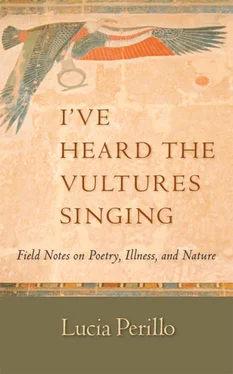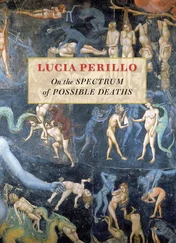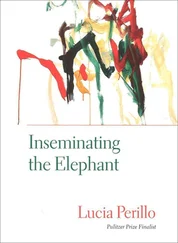There’s also the dilemma that whatever I say or write today will be outdated tomorrow, because by then I will have slipped to a different place, most likely at a lower elevation, at least from the point of view of the flesh. If there’s any consolation to be taken in such a life, the slipping life, it may be in the sheer speed and whooshing of its passage. At least it is not ordinary, and I can take heart in the oddness of my path, even though it did not lead me to the kind of wilderness I expected. Funny how I did end up inside the avalanche after all, not dead. And I could say there is a peculiar glamour in being stuffed with all these glittering crystals, but I’m not crazy enough to make that claim.
Downtown, behind an empty warehouse and the sewage plant, Puget Sound sticks a thumb into the mouth of Moxlie Creek. This is one place I go to watch seabirds — now that I can’t walk, I can’t be too picky about what incarnation of nature I’ll accept. I’ve been forced to gerrymander my definition of the wilderness, if I’m to have any wilderness at all. Often this means staring at the mud that is the bottom of the bay, where gulls battle over scraps of dead sea life while the water is retracted elsewhere by the tide.
Swantown is the historical name of this place, though Costa del Bum is what I call it — homeless men lounge here in their winter parkas, even when the sun is blazing. The sun’s appearance will cause businessmen and joggers to lie down here too, on this fingernail-paring’s worth of grass that must be mowed by God; at least I’ve never seen anyone else take care of it. The lions and lambs, the yuppies and hobos, like a scene from a Jehovah’s Witness pamphlet.
The only drawback is the musky rotting smell, which you’ll get used to soon enough — and when you acclimate, the odor will grow close to being sweet.
The smell gets worse when the water disappears, and it eases up when the water reappears again a half-day later. Meanwhile the gulls gather on the nearby warehouse’s rounded quonset roof, standing there like compliant citizens waiting on the platform for a train. Sometimes they’ll erupt into a round of violent squawks, but just as suddenly their anger’s gone, the way the bay goes a little crazy when a rock’s thrown into it but soon grows calm again.
To fill the space of body-motion, I play knowledge games that substitute for the physical ones I’ve lost. I play my games to trick myself into believing that the simple act of walking isn’t what I miss most of all (a grief that might be too obvious to have to state, though I always have to remind myself that there do exist in this world people like my father — well, he doesn’t exist anymore, except in my memory, where he is still a man who parks with an outlaw’s recklessness in order to be not more than a few steps away from whatever doorway he’s about to enter. When I took him to national parks, he sat in the car and waited for me to return from circuiting the half-mile nature trail. The irony that’s been awarded to him posthumously is that his tombstone can’t be seen from the road.)
The point of these knowledge games is to be outdoors, focused on something that lies outside my own body, which happens to be not walking but wheeling along. I figure I might as well pick something difficult to be the object of the knowledge game, to consume a lot of mental energy as though this were equivalent to the calorie-burning of jogging. Hence the attraction of gulls, whose identification is near impossible.
Field Note from 9/26
I’m looking at Costa del Bum from across the bay at Priest Point Park, where my friends have encouraged me to climb down from the scooter and lie on the mud so I can feel it against my spine, poor spine that rarely gets a chance to straighten. The only birds on the water are the gulls, and my line of sight is flush with them. . but I’ve forgotten the field guide, which sets my project back from the start.
My project being: to give each gull a name.
Instead, I start by watching their beaks open when they lunge toward one another, their tongues flickering like the tongues of snakes. Their feathers look thick and solid, a white hide from which it would be hard to draw blood.
Because I want to get a good look at them, we lay down near the water’s edge, and the tide that was low when we arrived is soon lapping at my feet. Then it turns out that my friends have overestimated both their strength and mine, and when they have trouble erecting me, we have to call over a guy who’s been watching us, looking perplexed. He’s hanging back from the rest of his group of kids and adults who are wading.
“I wouldn’t go in that water. That water’s nasty,” he says, gesturing with his beer can.
“No, it is beautiful — what’s wrong with it?”
“All that dead stuff,” he says, tottering as he lifts me.
Beyond being a knowledge game, this gull-watching is also part of a self-improvement program I’ve launched — trying to train myself not to overlook the common thing. Why does the rare thing arouse more interest? Why doesn’t a gull compel anybody like an eagle would? One answer could be that this phenomenon is a byproduct of the tendency toward procrastination that is inherent in human nature. We assume the common things will always be here, so we tell ourselves we’ll deal with them another day.
Whereas if an eagle soars by, which is not so unlikely at a place like Costa del Bum (part of a small city that happens to contain some eagle habitat), we’ll feel obligated to memorize whatever anecdote it creates for future retelling, particularly if it performs a dramatic, violent feat. We build our conversation from this game of one-upmanship:
“I saw an eagle swoop over the backyard while I was mowing the lawn.”
“One snatched a salmon off my barbecue.”
“Oh, I have a good friend who’s an eagle.” Et cetera.
Gulls, on the other hand, possess less narrative value — it can be tough to cull a good story from their fitful scavenging. Raymond Carver’s poem “Eagles” tells of sautéing a ling cod that an eagle has dropped: consuming this fish makes the narrator feel connected with “an older, fiercer order of things.” Eating something dropped by a gull, on the other hand, would not inspire this kind of noble sentiment — because the dropped thing would most likely be trash.
Field Note from 11/6
I’ve scoped these gulls out as herring gulls, distinguishable by their pink legs. “Abundant, widespread, increasing” says the bird book, “the most common large gull over most of North America.” So I take that name and run.
When I’m thinking about birds, I think of Emily Dickinson, who wrote so many bird poems that birds could be called her signature subjects (well, birds and also the shadow-version of their restless movement, which is the stock-stillness of death). The handy thing about birds is that you can spy them from your window even if you never leave your house, as gradually became the case with Dickinson, famous for her reclusiveness. A bit of luck that she was drawn to birds. A graver tragedy would be for her to have been a tidepool enthusiast, because it’s hard to imagine the kind of storm that would send a hermit crab flying by.
In fact, Emily Dickinson didn’t write any poems about gulls — the only connection I’m making is that she, too, lived under circumstances that limited what parts of nature she could access. And though the location of her fieldwork was restricted (maybe her backyard wasn’t ever passed over by the inverted droopy W’s of gulls), she chose to retain nature for subject matter, instead of turning away from it, which would have been the easier course of action.
Читать дальше











![Various - Birds and Nature, Vol. 12 No. 5 [December 1902]](/books/745517/various-birds-and-nature-vol-12-no-5-december-thumb.webp)
![Various - Birds and Nature Vol. 11 No. 2 [February 1902]](/books/745533/various-birds-and-nature-vol-11-no-2-february-1-thumb.webp)